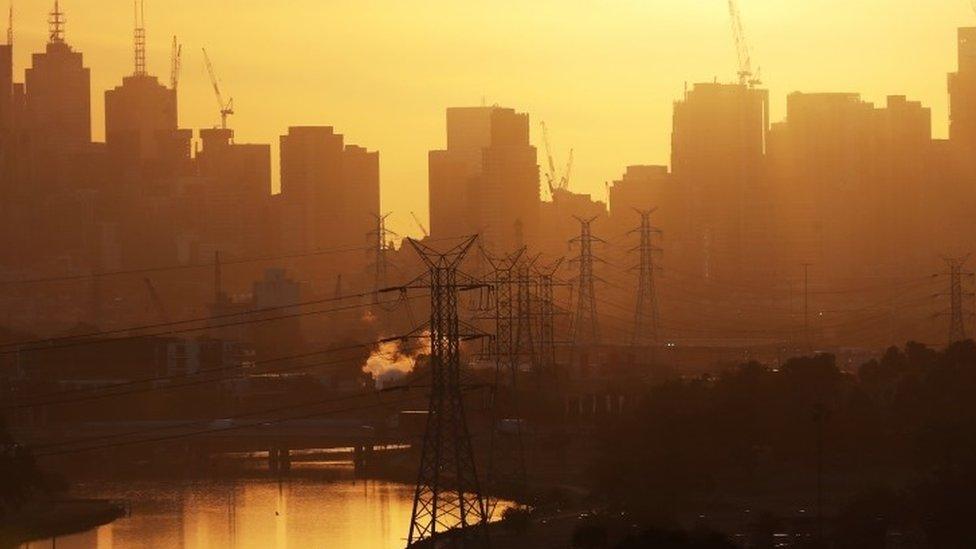Shane Fitzsimmons: 'Tireless' fire chief steering Australians through disaster
- Published
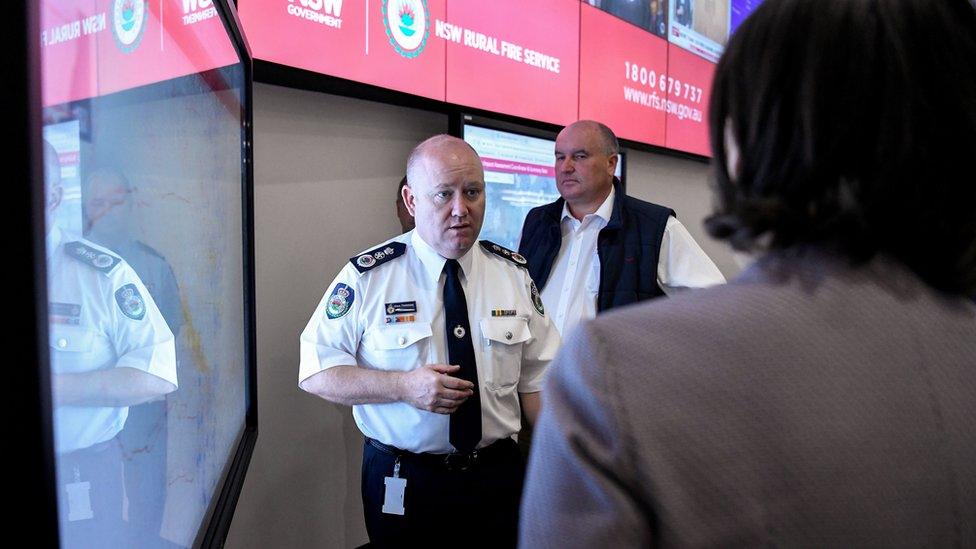
Rural Fire Service chief Shane Fitzsimmons has drawn wide praise
Australia's bushfires have been described as "apocalyptic" this season. Day after day, images of flames, destruction and smoke have filled television and social media screens.
Amid the chaos, fire service officials have been praised for their leadership. One in particular has become a face of the crisis - and a household name.
Shane Fitzsimmons, 50, is the commissioner of the Rural Fire Service (RFS) in New South Wales, the worst-hit state.
At press briefings, he's become renowned for delivering warnings and key developments - often bad news - in a straight-talking, informative way. As commissioner, he's also borne ultimate responsibility for the fight against the state's blazes - some the size of small countries.
His efforts have been appreciated by a grateful public.
"You've been there from the beginning doing everything within your power to bring an end to these horrific bushfires," reads one social media post that has been shared 20,000 times.
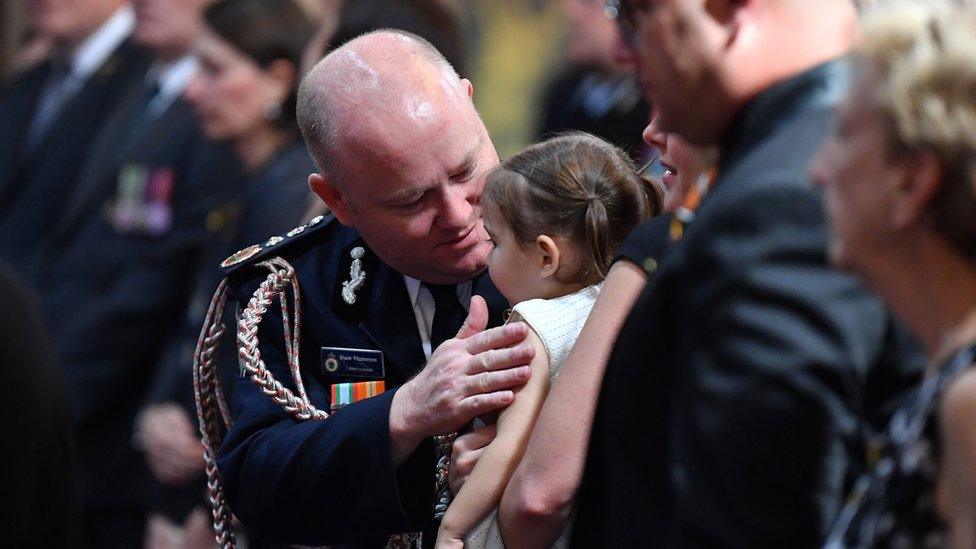
Mr Fitzsimmons with Charlotte O'Dwyer after her firefighter father, Andrew O'Dwyer, died on duty
"You are the only person that I and probably many of the people of Australia have any trust in at the moment."
'Masterful' leadership
Mr Fitzsimmons joined his local volunteer fire brigade in Sydney's north when he was a teenager, following in his father's footsteps. By 29, he had risen to be assistant commissioner.
He has been leading the 74,000-member organisation - the world's largest volunteer firefighting service - for over 12 years. But this season has seen blazes unprecedented for their size and intensity.
"It's very much been his trial by fire, I think, and he has performed masterfully," says his predecessor, Phil Koperberg.
Mr Koperberg tells the BBC: "He seems to have displayed a remarkable resilience and energy that has also been shown by others on the senior team."
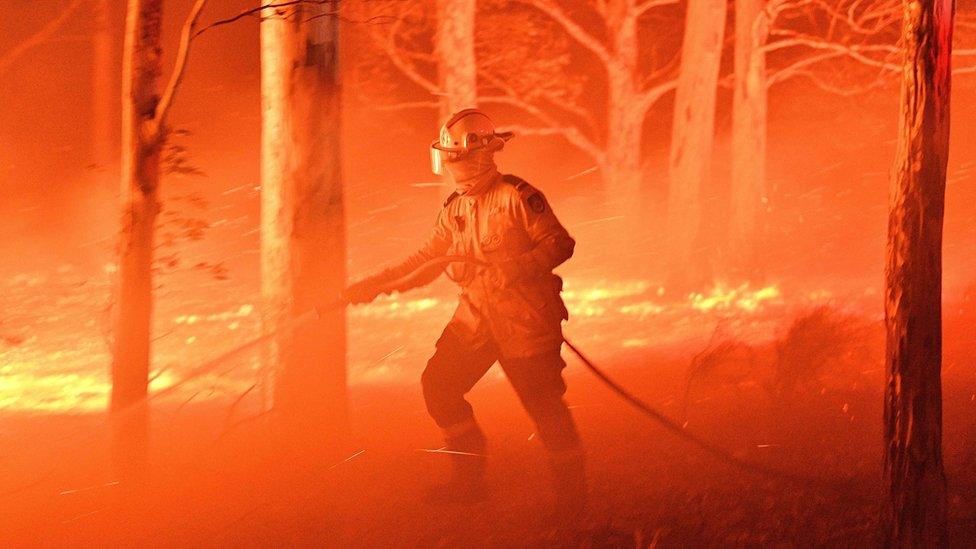
A volunteer firefighter battles a blaze near Nowra last month
That work has not gone unnoticed. Praise for the commissioner has been effusive all summer, with local media producing tribute videos, external and praising him in articles, external.
Others have suggested he be named Australian of the Year.
Allow X content?
This article contains content provided by X. We ask for your permission before anything is loaded, as they may be using cookies and other technologies. You may want to read X’s cookie policy, external and privacy policy, external before accepting. To view this content choose ‘accept and continue’.

Mr Fitzsimmons typically arrives at the Sydney command centre before 05:00 and stays late into the night, says RFS spokesman James Morris.
His work ethic is one thing, but Mr Koperberg adds: "I think what has impressed most is the compassion that's he's shown in dealing with the tragedies which seem to unfold day after day."
At least six firefighters, including three from the US, have died in NSW during the crisis. Observers say Mr Fitzsimmons took a lead role in paying tribute to each firefighter, addressing both the public and relatives personally.
In December, a picture of the commissioner pinning a medal on the 19-month-old son of one of those firefighters was widely shared online.
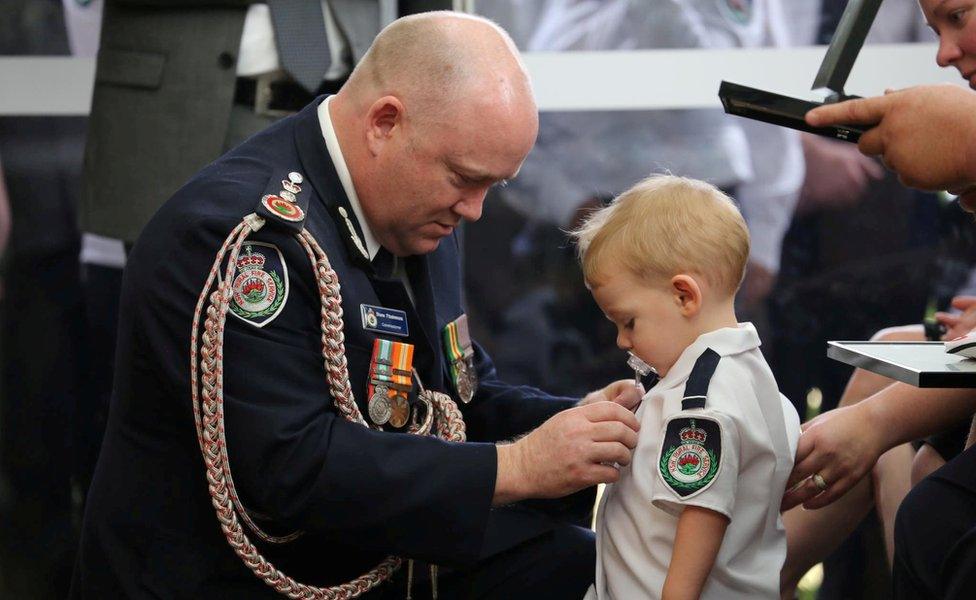
Mr Fitzsimmons with Harvey Keaton - the toddler's father, Geoffrey Keaton, was killed on duty
It was additionally poignant because Mr Fitzsimmons' own father, George, had died in a fire in a national park in 2000.
"He can understand fully the depth of grief felt by those who've lost their loved ones to the fires, when not many of us can," says Mr Koperberg.
Constant presence
Commentators have often contrasted Mr Fitzsimmons with Prime Minister Scott Morrison, who has drawn criticism for his actions during the bushfires.
Mr Morrison was accused of being slow to respond to the crisis, and controversially took an unannounced holiday to Hawaii. Upon his return, he was heckled by locals in a bushfire-devastated town.
The comparison between the two leaders has been especially highlighted by the Australian media, says Prof Ariadne Vromen from the University of Sydney.
"Fitzsimmons has been constantly present unlike the PM. He's portrayed as not only the professional leader, but also someone who can demonstrate empathy, who can show his own emotion in a way people find relatable," the political sociology expert says.
Can Australia's PM Scott Morrison recover from the fires?
The commissioner radiates credibility and honesty, she says. He has steered clear of political blame games, but also stepped in at times to refute incorrect statements on politically sensitive topics. One example is the wrong assertion by some that arson is the key reason for these fires.
Mr Fitzsimmons has also emphasised the role of climate change - a topic which has polarised Australia's conservative government in recent years.
"He has been quite comfortable in saying this is the most unpredictable and worst bushfire season ever - what people themselves are feeling and observing - and he's calling it for what it is," says Prof Vromen.
"There is that kind of honest and truth-telling that is resonating with people, particularly when it contrasts with the obfuscation from the federal government."
There has even been speculation that political parties could seek to court him for a future career in parliament - Mr Koperberg became a state MP after his tenure as fire chief. But Mr Fitzsimmons has rebuffed these notions, as dozens of fires continue to burn across the state.
"He's not trying to win votes," says Prof Vromen. "He has no agenda beyond dealing with the emergency, and that's important to people."
- Published24 December 2019
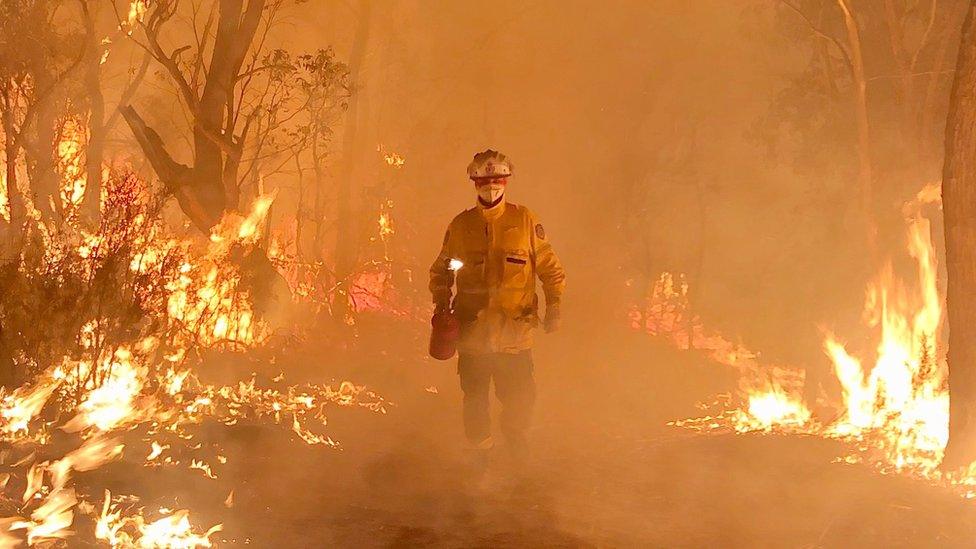
- Published24 January 2020
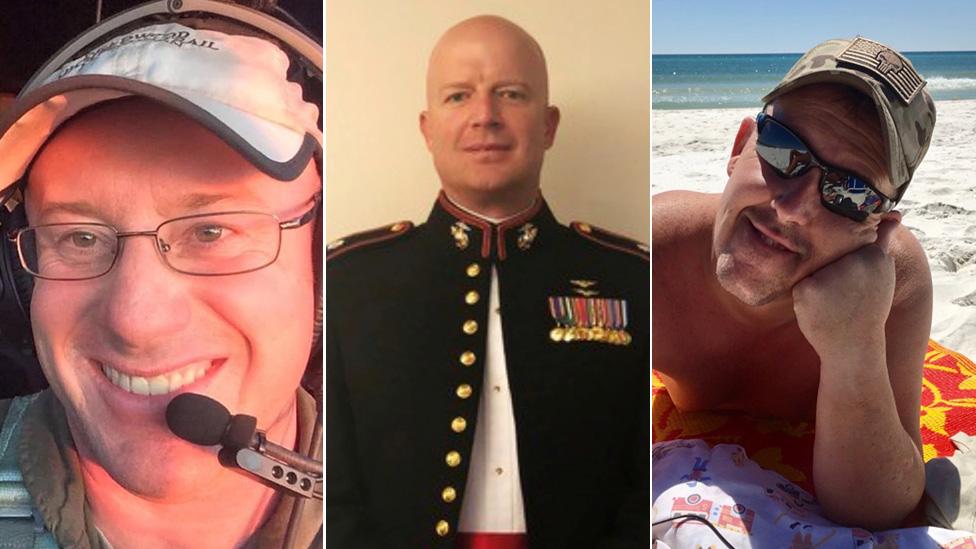
- Published22 January 2020
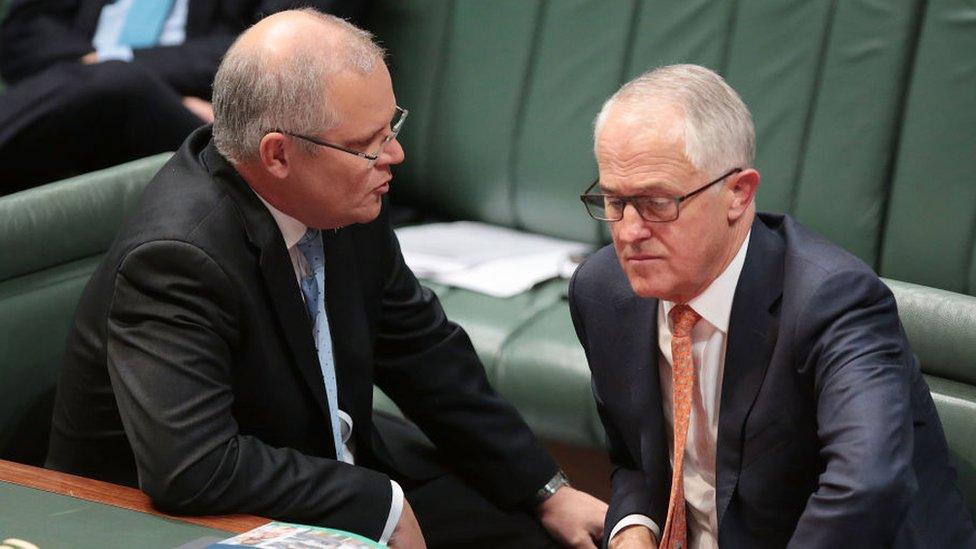
- Published2 January 2020
